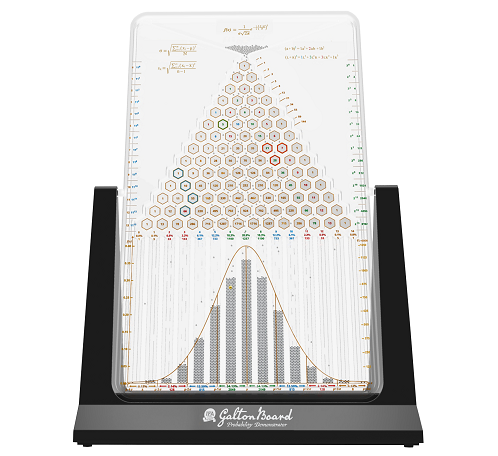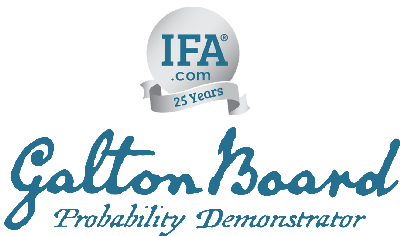As an independent registered investment advisor, Index Fund Advisors is set up to eliminate conflicts of interest that too often surface when a firm tries to both manage a client's wealth as well as act as an investment broker.
We've written a lot about the advantages of operating as a true fiduciary and how such a separation of duties allows us to keep our financial and investment recommendations as objective and conflict-free as possible. As a result, IFA's outside business network includes large institutions that handle back-office functions such as processing transactions and serving as custodians of our clients' assets.
Working with an IFA advisor who strives to act in a client's best interest comes with another set of plusses. As our wealth management firm has grown in size, so has its reach with opening new lines of service for our investors.
Below are a few highlights of the latest financial services and programs that our custodians are currently making available to IFA clients. Please feel free to consult with your advisor for program specifics as they become available through our expanding wealth platform.
Schwab
Schwab Bank, a wholly owned subsidiary of Charles Schwab Corp., offers a full suite of home lending products through Rocket Mortgage. As part of that program, IFA clients working through their advisors can get up to 100 basis points (1%) in discounts on certain types of loans.
Loans open to these lower rates are adjustable rate mortgages (ARMs) as well as "jumbo" 15- and 30-year fixed-rate loans. (An important note: Discounts don't apply to home equity lines of credit or FHA fixed-rate loans offered through the U.S. Federal Housing Administration. Fixed-rate loans through the U.S. Department of Veterans Affairs also aren't eligible for Schwab's discount program.)
Interest rate discounts are based on the value of a client's combined qualifying non-retirement balances at Schwab brokerage and Schwab Bank. This can also include balances transferred from other financial institutions to Schwab. An important caveat, however, is that all such outside assets brought to Schwab must be there within 15 days of a loan's closing date.
Also, we like to remind our clients that Schwab determines how much in qualifying assets an IFA client might have at the individual level (for all borrowers listed on an application) — not by household.
The ARMs work just like the name implies — rates fluctuate for a certain period according to Secured Overnight Financing Rates (SOFR). Meanwhile, a jumbo loan refers to higher valued houses, but this can vary greatly by state and county. In much of California, for example, a mortgage deal exceeding $800,000 is likely to be classified as a jumbo loan. In parts of Texas, however, a home loan of $500,000 might be considered a jumbo loan.
Based on the eligible balance a borrower holds at Schwab, an IFA client can qualify for one of the following discounts (which aren't cumulative):
- For those with eligible non-retirement Schwab qualifying assets of $250,000 to $749,999, the interest rate discount for purchases and refinances is 0.25%.
- Under the same conditions, those with $750,000 to $4,499,999 can get a discount on such transactions of 0.50%.
- Clients with $4.5 million to $8,999,999 can qualify for a discount on such lending activities of 0.75%.
- The tiered discount levels based on assets held through Schwab increases to 1% for clients with $9 million or more.
The bank also provides a "pledged" asset line, or PAL, which allows IFA clients to borrow against their investment accounts held at Schwab. This type of credit line can be set up ahead of time to be available for emergencies and other unexpected expenses. Clients can also use a PAL to strategically purchase real estate assets, such as needs related to financing residential, commercial and rental properties.
No extra costs are involved to establish this type of credit line. In some situations, this could make sense since in order to meet a short-term expense, clients wouldn't need to sell their investments. A pledged asset line can be submitted through your IFA wealth advisor, who can take advantage of a dedicated Schwab specialist to help process and facilitate any applications and/or questions about the PAL process.
Another feature that Schwab has brought out is a platform for those interested in taking advantage of a Health Savings Account. Such an HSA savings account lets you put aside money on a pre-tax basis to pay for qualified medical expenses. Generally, these can only be used with high-deductible health care plans.
With Schwab's HSA self-directed brokerage program, our clients can open an account directly through one of Schwab's two approved Health Savings Account providers, Discovery Benefits and Optum Bank. Once the HSA is open and funded, it can be electronically linked to IFA. This allows your IFA wealth advisor to help you select funds, allocate assets and build a risk-appropriate portfolio to meet your healthcare needs.
Investments are open to all eligible funds currently available to IFA clients on Schwab's institutional trading platform. (This includes funds from Dimensional Fund Advisors.) Schwab also offers its own branded American Express credit card and high-yield investor checking as well as savings accounts and online bill paying services, among other features. For more information, we encourage you to check IFA.com's Fiduciary Wealth Services page under the Referrals section.
Former TD Ameritrade clients, who were folded into Schwab as part of the merger that was completed in September 2023, can get ahold of their IFA wealth advisors to help answer any questions related to the TD Ameritrade-Schwab integration of accounts and services.
Fidelity
Fidelity has also established certain service arrangements with banks and other financial institutions.
On the mortgage side, the asset manager and custodian says it can help IFA's advisors and their clients work through U.S. Bank to receive "highly individualized" service in consideration of qualifying for loan amounts based on various personal and business lending circumstances.
For example, Fidelity officials say they find that U.S. Bank works with a lot of home as well as business owners on construction loans. They also find the bank is well-positioned for large capital outlays such as buying yachts and jets for corporate or private use.
Also, Fidelity works with both U.S. Bank and Goldman Sachs on a program for so-called non-purpose loans. These act much like securities loans and can be used for a wide variety of personal and business lending activities. In combination with IFA's advisors, Fidelity says such a network can be used to help check various tiered pricing schedules to find the best rates for each individual situation.
Fidelity stresses that its online lending management tools are designed to let IFA's wealth managers view broad snapshots of each client's loan information. This includes data on a person's total loan balance, credit lines and other pertinent financial details. IFA also extends use of eMoney to its clients, whether they choose to use Schwab, TD Ameritrade or Fidelity. Since it owns eMoney, though, Fidelity points out that its lending management technologies are built to mesh with such a financial planning software package.
In addition, Fidelity offers a self-directed HSA account that our clients can link to their IFA accounts. As with Schwab's platform, Fidelity's program allows IFA's wealth managers to help their clients set up and implement an individually tailored HSA portfolio. Likewise, Fidelity lets HSA account holders use the same funds (including those from DFA) they can access in an IFA Index Portfolio. It's also probably worth noting that besides Discovery Benefits and Optum Bank, Fidelity's HSA platform is designed to work with almost all HSA providers.

This is not to be construed as an offer, solicitation, recommendation, or endorsement of any particular security, product or service. There is no guarantee investment strategies will be successful. Investing involves risks, including possible loss of principal. Performance may contain both live and back-tested data. Data is provided for illustrative purposes only, it does not represent actual performance of any client portfolio or account and it should not be interpreted as an indication of such performance. IFA Index Portfolios are recommended based on time horizon and risk tolerance. For more information about Index Fund Advisors, Inc, please review our brochure at https://www.adviserinfo.sec.gov/ or visit www.ifa.com.














